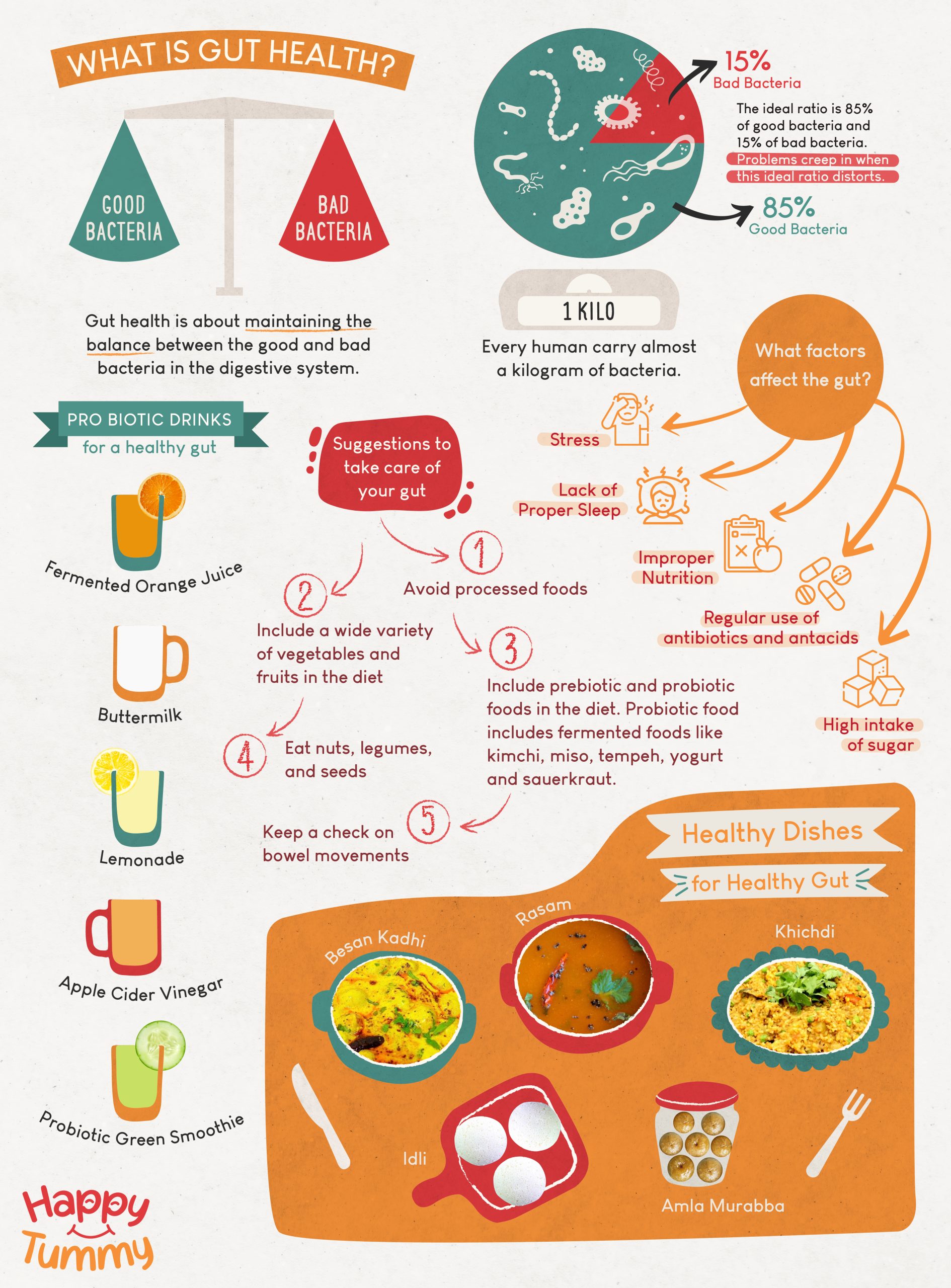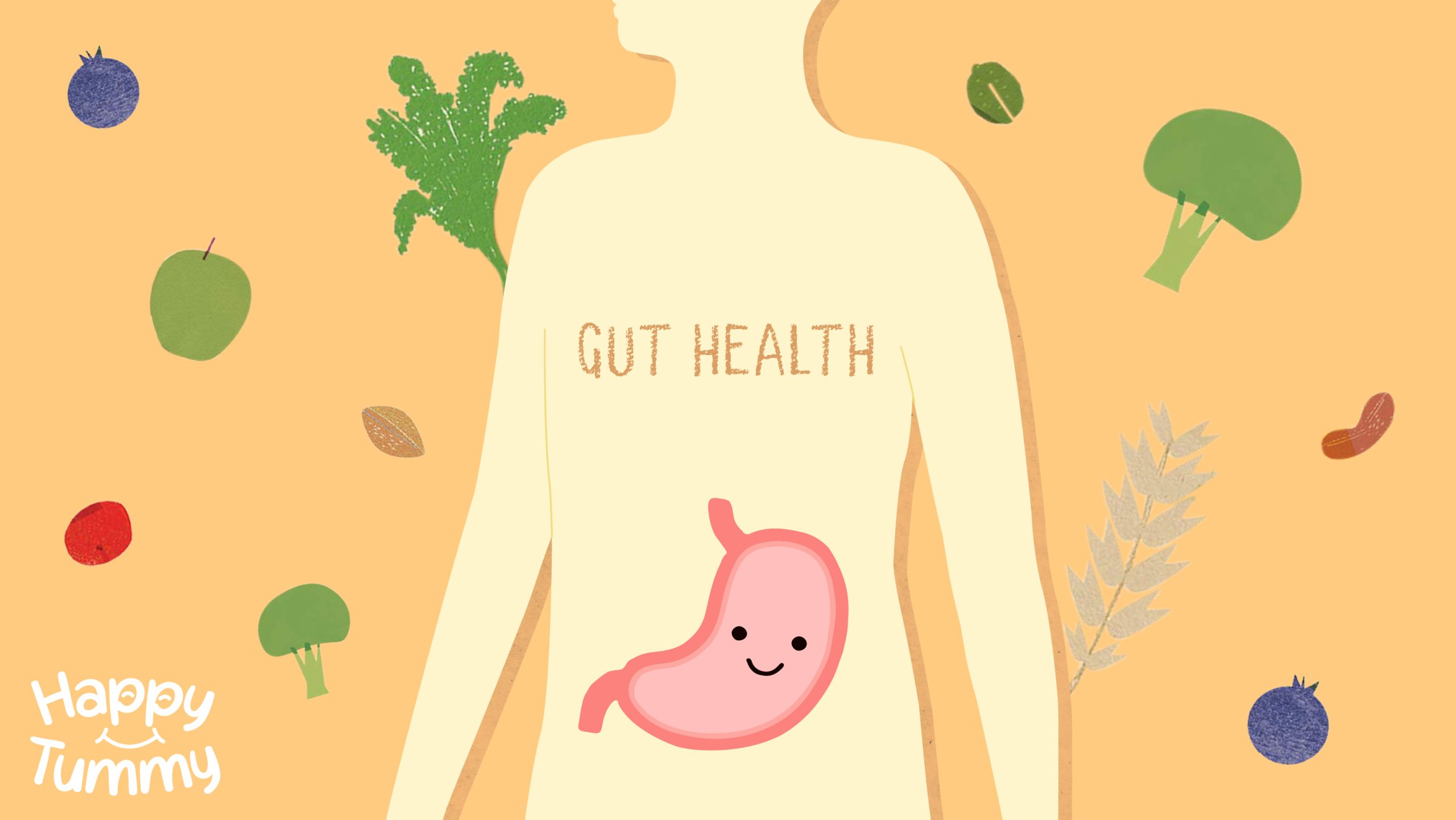Table of Contents
“Way to a man’s heart is through his tummy/ gut.” This saying applies to not just men but all humans because the stomach is a pathway to holistic health. You might be surprised about its more profound connection with mental health, which will excite you to know more about its essential foundation in our physical and emotional lives.
You will be surprised to know that 80% of the immune system lies in our gut, and most of our body’s serotonin (the chemical responsible for maintaining mental health) is in it.
Given the higher incidence of stress and mental health issues, the role of the gut in affecting mood and behavior might be one of the critical research areas for the future.
This article will inform you of this relatively complex topic in a simple way, apprising you of the different dimensions of the significance of gut health.
Here it goes.
The Gut is the Second Brain
Everyday slang might ask us not to ignore our gut feeling or gut instinct while deciding something. What does gut feeling mean? Does it mean that our gut can think? Or does it connote any relationship with how our mind thinks or works?
No, we cannot think by our stomach, but it has an indirect impact on our thinking and behaviour. It is scientifically proven that the gut is the second brain because it releases several neurotransmitters that affect our mood and behaviour.
Poor gut health can lead to several psychological issues, such as anxiety, autism spectrum disorder, Parkinson’s, etc. Conversely, poor mental health affects gut wellness, leading to diarrhoea, IBS (Irritable Bowel Syndrome), etc.

What is Gut Health?
Simply, gut health is about maintaining the balance between the good and bad bacteria in the digestive system. Our digestive system is stuffed with trillions of micro-organisms, such as bacteria, fungi, and viruses, collectively known as gut microbiomes.
These microbiomes break down the food and turn it into nutrients our body can absorb easily. Not all viruses are notorious; some are good for us, and we must have them.
Let us learn about microbiomes and how to retain or grow good bacteria in our stomachs.
What do these Gut Microbiomes do?
Gut microbiomes work wonders when it comes to digestion and breaking down food into nutrients. They give us a strong immune and hormone system. Every human carries almost a kilogram of bacteria, and the ideal ratio is 85% of good bacteria and 15% of bad bacteria. Problems creep in when this ideal ratio distorts.
What Factors Affect the Gut Health?
- Stress
- Lack of proper sleep
- Improper nutrition
- Regular use of antibiotics and antacids
- High intake of sugar
How will you know that your Gut is Unhealthy?
Well, you can have bloating, gas, constipation, and diarrhoea. Besides these apparent tales, autoimmune disorders can trap you where your immune system would attack different body parts and cause diseases like type 1 diabetes, arthritis, rheumatoid, Hashimoto, etc.
Other symptoms of poor microbiomes are mood fluctuations, craving issues, sleep disorders, fatigue, and chronic pain.
The Good News is that taking care of the gut is easy. You only need little mindfulness and lifestyle modifications.
Ten minutes of sitting in silence, walking in the lap of nature, hitting the bed at the right time, and of course, not giving too much value to taste buds are some ways.
Some more suggestions are as follows:
- It is essential to include a wide variety of vegetables and fruits in the diet because they are a rich source of vitamins and minerals.
- We should eat nuts, legumes, and seeds. Cashews, almonds, walnuts, pumpkin seeds, and lentils also support gut health if taken in moderation. These are excellent sources of fibre and proteins.
- One should avoid processed foods and start relying on whole grains. Brown rice, barley, millets, oats, whole wheat, etc., are excellent dietary fibre sources that take good care of our gut.
- Including prebiotic and probiotic foods in the diet also serves the purpose. Prebiotic and probiotic food increases the number and diversity of good bacteria. Prebiotic food includes almonds, apples, bananas, flax seeds, broccoli, onions, and garlic. Probiotic food includes fermented foods like kimchi, miso, tempeh, yogurt and789, sauerkraut.
- If you cannot include prebiotic and probiotic foods in your diet, you can take supplements (as per the doctor’s suggestions).
- Limiting antibiotic intake is advisable, as it wipes out both good and bad bacteria. One should take antibiotics only if it is essential. If natural remedies could help then, in that case, antibiotics could be avoided, like in the case of the common cold.
- It is always sensible to eat slowly. One should chew the food as much as possible so that the digestive system’s job is reduced.
- Our gut needs the rest of 16 hours to stay healthy, so avoiding eating late at night is prudent.
- It is necessary to keep a check on bowel movements. Every gut is different, but a healthy gut often has a pattern. The food generally takes 24 to 72 hours to pass through our digestive tract. The food arrives in the large intestine after six to eight hours; only then is our gut ready to be cleared. If your bowel movement is not regular, you must be holding on to the food you ate days back. Therefore, intake of water and fibre is necessary to avoid constipation.
How can Probiotics help your gut?
Probiotics mean “for life;” they improve the balance of flora in the digestive system. Primarily, seven types of good bacteria are present in different foods. The most popular is lactobacillus, found in yogurt and fermented food.
Another one is Bifidobacterium, which mostly finds its place in dairy items. It is a great way to cure irritable bowel syndrome. Some others include Saccharomyces boulardii, Streptococcus thermophilus, etc. One must include probiotics in their daily or weekly diet.
Probiotic Drinks for a Healthy Gut
- Buttermilk
- Simple milk kefir
- Lemonade
- Coconut Water Kefir
- Fermented Orange juice
- Apple cider vinegar drink
- Probiotic green smoothie with cucumber and green leafy vegetables.
These drinks use kefir grains which are good for gut health.
Why Should I Take Prebiotics?
If you have taken antibiotics recently, then all the friends of your gut are wiped out because antibiotics wipe out both good and bad bacteria. Therefore, the gut needs new friends again. Prebiotics like onion, asparagus, garlic, bananas, legumes, etc., feed good bacteria. These items:
- Boost immunity
- Reduce inflammation
- Decrease cholesterol levels
- Prevent or cure diarrhoea
- Improve oral hygiene
- Prevent weight gain
- Boost your mood
- Cure urinary infections
- Prevent eczema and allergies in children
Are You Feeling Low and Depressed? Have a Proper Diet
When our digestion process is compromised then, in that case, the gut produces fewer neurotransmitters, such as serotonin which is responsible for emotions and feelings. 95% of serotonin is produced in our small intestine.
Low production of serotonin results in anxiety, depression, and other psychological problems.
The situation might differ from person to person, but a proper diet would relieve sadness, brain fog, and diminished energy.
Are you a slow eater? Pat on Your Back!
Are you eating your food slowly? Are you taking time to chew the food? If yes, you deserve a pat. It will jump-start the digestive process and prepare your body for digestion. Of course, you are on the right path to maintaining your gut in the right mood!
The Brain-Gut Connection? What Research Says
Several people ask if there is a connection between the brain and the gut. Before going through any research, you must have heard “have the guts or gone with your gut” or have felt butterflies in your tummy while making any crucial decision or nervous.
It happens because you get the signal from your second brain, the gut. This brain in the gut is revolutionizing the research concerning the relationship between digestion and mood fluctuation.
There’s an old belief that you are what you eat. This implies that your personality also depends on your food choice. According to scientists, the second brain is called the enteric nervous system (ENS).
For decades, physicians believed that anxiety and depression cause bowel problems like diarrhea and constipation, but according to the researcher Pasricha, things are another way around.
The researchers are trying to find evidence that gastrointestinal irritations could signal to our central nervous system (CNS) and cause mood changes and other psychological issues.
As per the studies, 30 to 40% of people dealing with depression and anxiety had functional bowel issues at a point in time.
New research studies suggest that digestive system activities impact a person’s cognition, thinking skills, and memory.
Some Healthy Dishes for a Healthy Gut
1. Khichdi: This dish would calm your gut. It is a highly recommended meal for a good and healthy gut. It relieves constipation and loose bowel movements. If you add veggies to your khichdi, the nutritional values also increase.
2. Curd Rice: Curd is considered the most effective food to heal digestive issues. The microbial properties are good for gut health. Curd rice is easily digestible and maintains microbial balance in the body.
3. Idli: South Indian dishes are light and easy to digest. Idlis are low in calories and contain good bacteria.
4. Besan Kadhi: This dish is high in magnesium and fibre. It helps in weight loss and treating period cramps and constipation.
5. Dhokla: It is soft and easy to digest for toddlers and older people. This dish also aids the balance of good and bad bacteria.
6. Buttermilk: Popularly known as chaas, it is a by-product of churning cream into butter. It is low-fat, thin, and slightly acidic.
7. Amla Murabba: Amla is a citrus fruit fermented with sugar to make murabba.
8. Rasam: This drink is prepared in the South of India and is great for our digestive system. It makes it easier to pass the stool.
Yes, a healthy gut is the foundation of our health. Eat healthily is not just a saying but a summary of how our gut stays healthy and keeps us healthy.
FAQ
Q1. What is the best diet for a healthy gut?
A. A balance between good and bad bacteria is needed, so one must include prebiotics and probiotics in their diet.
Q2. How to improve gut health?
A. Avoid stress, have a night of sufficient sleep, chew food properly, drink a lot of water, eat high-fibre food, consume prebiotics and probiotics, and make an exercise routine.
Q3. Is there a link between gut health and mental health?
A. Yes! There is a direct link between your mental and gut health, as 90% of the serotonin is produced in the gut, which is responsible for our feelings and emotions.
Q4. How to improve gut health naturally?
1. Try to decrease your stress levels
2. Take ample sleep
3. Eat slowly, chew your food properly
4. Always stay hydrated
5. Include prebiotics and probiotics in your diet
6. Keep a check on your food intolerances
Q5. Do probiotics improve your gut health?
A. Yes, probiotics definitely improve your gut health.















